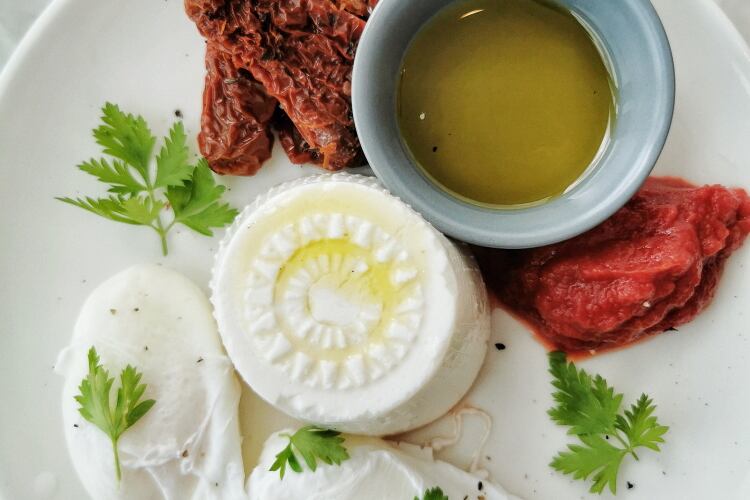Malta is the only EU country that doesn’t have a food product on the bloc’s protected food heritage list. The Mediterranean state is famous for its artisanal raw sheep’s milk cheese, gbejna, which is as iconic in the country as feta is in Greece.
For many years, local farmers and cheesemakers have been trying to come together to submit an application under the EU’s protected designation of origin (PDO) framework, designed to preserve the designation of origin of food products. From French comté to Dutch gouda, a myriad of popular dairy products use the status as a mark of authenticity, including by featuring the coveted ‘PDO’ on labels.
Malta’s competition and consumer affairs authority has been holding lengthy consultations with stakeholders over the country’s application to the European Commission, with the latest twist in the saga leaving sheep herders on knife edge.
The loophole
The wording of the latest version of the application has raised eyebrows among farmers and industry organizations, who had been hoping that the PDO would only apply to artisanal cheese made using traditional methods. Gbejna is typically made from 100% sheep milk, rennet and salt, dried in a ventilated room, and served fresh, sun-dried or peppered.
The revised application however features the term ‘gbejna tan-naghag’ (sheep’s gbejna) rather than ‘gbejna’ and ‘gbejnet’. According to the Malta Youth in Agriculture Foundation, this leaves the door open for copy-cat products to claim the PDO mark, such as cheeses made from goat and cow’s milk. “The need for the PDO is to reinforce the authentic product’s strong link with Maltese heritage and tradition, not to create further confusion within the market,” wrote the organization in an objection to the proposal. "Positioning ‘gbejna tan-naghag’ this way will, in the longer term, dilute the strength of the word ‘gbejna’ and its association to ‘sheep’s milk’”.
In its objection lodged during the latest round of consultations, the Foundation also highlighted that the wording leaves the door open for mass-produced cheese to claim the coveted status by specifically stating that ‘gbejna tan-naghag’ can also be air-dried in assisted chambers’. “The highlighted addition is nothing but a prelude in order to facilitate the future protection of mass-produced items,” the Foundation wrote. “This will fuel further the over-commercialisation of the cheese (whatever the source of milk) rather than incentivizing producers to add value to this unique product which employs traditional methods.
“Leaving such loopholes in the geographical indication means that the product will be more easily produced, pushing the prices (and profits) down and making it next to impossible for the responsible authorities (let alone the market) to properly identify the product and enforce compliance.”
According to the body, the revisions were made without proper consultation with the farming community, and, if the application was submitted in its current form, would weaken the power of Maltese sheep breeders within the marketplace.
In a statement published last week, the Foundation said: “Our main concern is that all the sheep breeders we talked to were - and some still are - completely unaware of what their 'representatives' were compiling in the new application, and the ones who eventually plucked up the courage and objected, were allegedly either warned to rescind their objection, or convinced that the PDO will actually protect the sheep's traditional cheese.
“We are also aware of at least one breeder who persisted, since this person wanted to be part of the discussion, but was never called in for the objectors' meeting.”
Brussels to decide
Despite the protestation, Malta’s competition and consumer affairs authority has approved the revised draft.
According to Times of Malta, the Authority wrote to sheep breeders on October 13, 2022 that the application will be sent to the European Commission, with EU member states now set to mull over whether to accept or reject the controversially-worded application.

